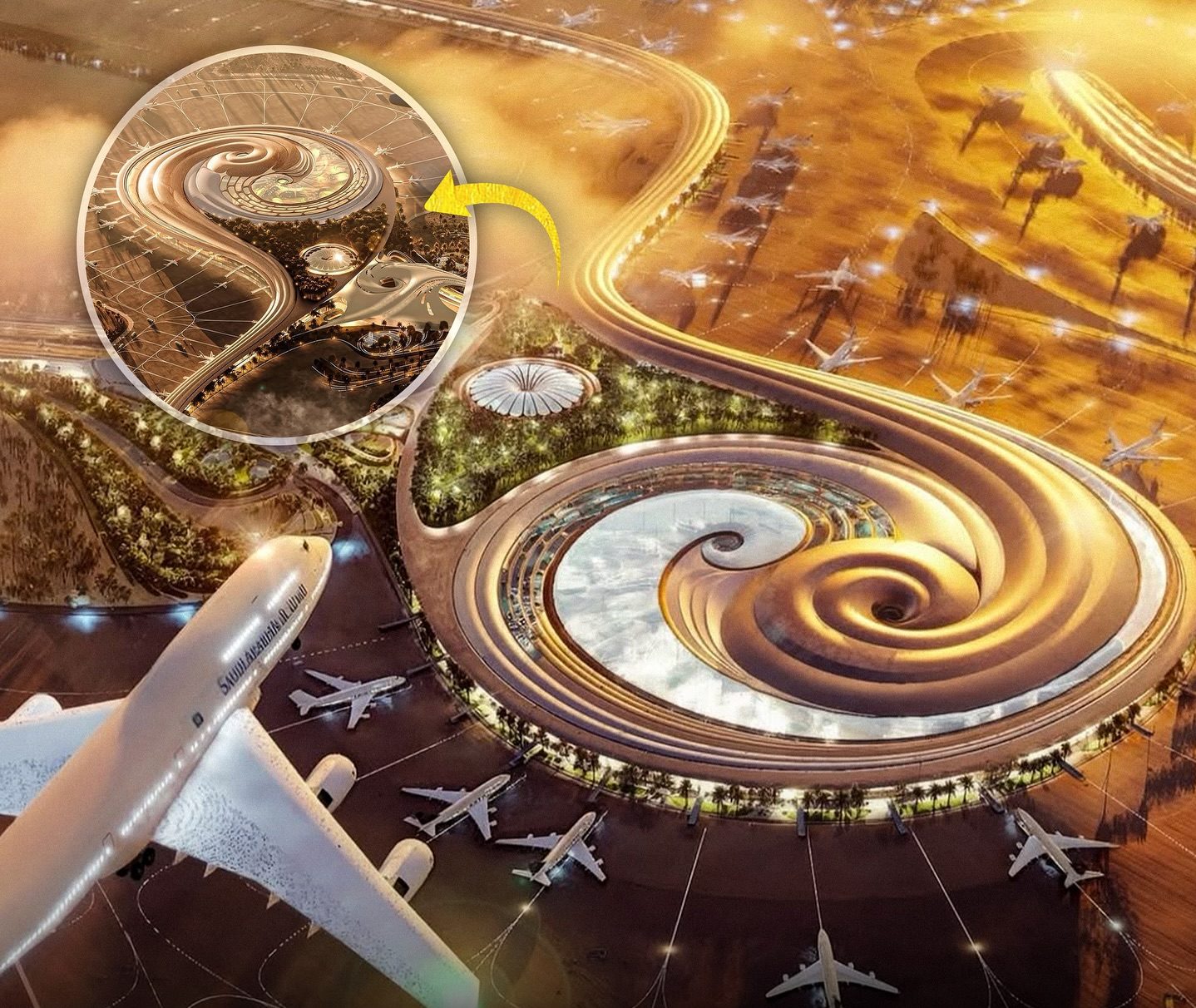Saudi Arabia Will Build the World’s Most Intelligent Airport for $30 Billion — A Futuristic City in the Sky Set to Redefine Global Travel
Saudi Arabia is redefining the future of air travel with an audacious vision — one that fuses technology, architecture, and ambition on a scale few nations have ever attempted. The Kingdom has announced plans to build the King Salman International Airport in Riyadh, a $30 billion project designed to be the most intelligent and innovative airport in the world.
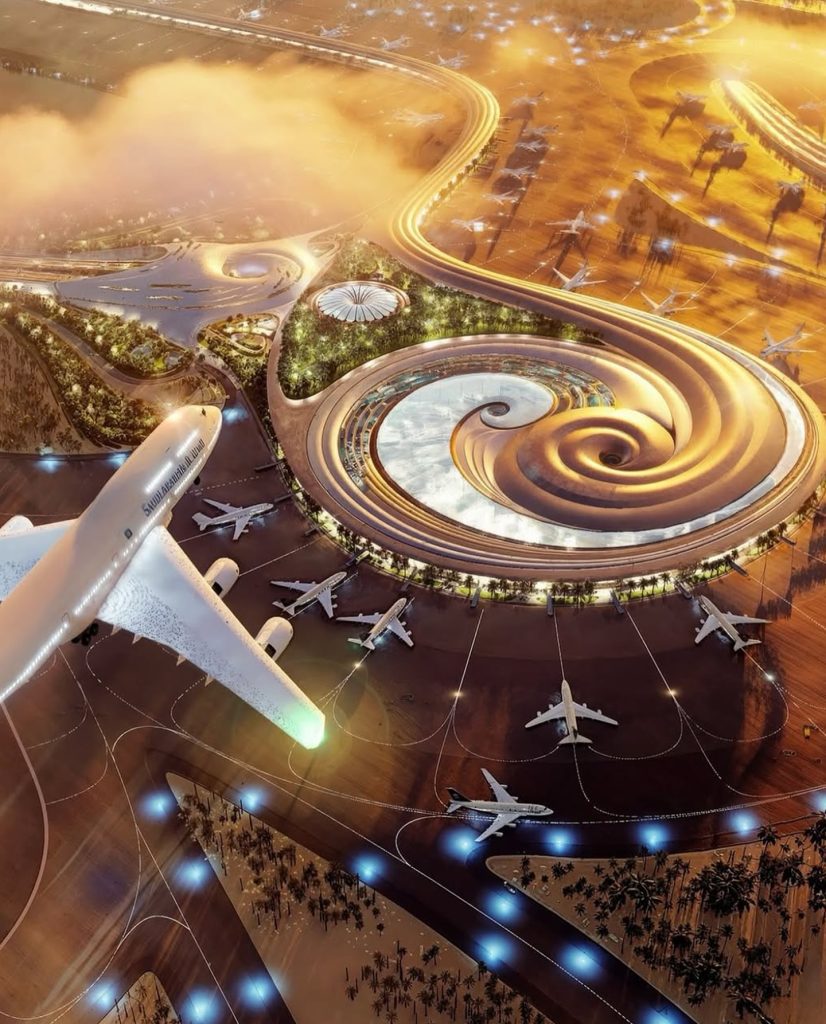
This is not just an airport. It’s a city — a massive, swirling landscape of terminals, towers, and connected ecosystems that will use artificial intelligence and augmented reality to deliver what developers call “a seamless human experience.” Stretching across an estimated 57 square kilometers, the new airport will include six parallel runways, futuristic smart lounges, and entire districts dedicated to logistics, retail, and residential microliving.
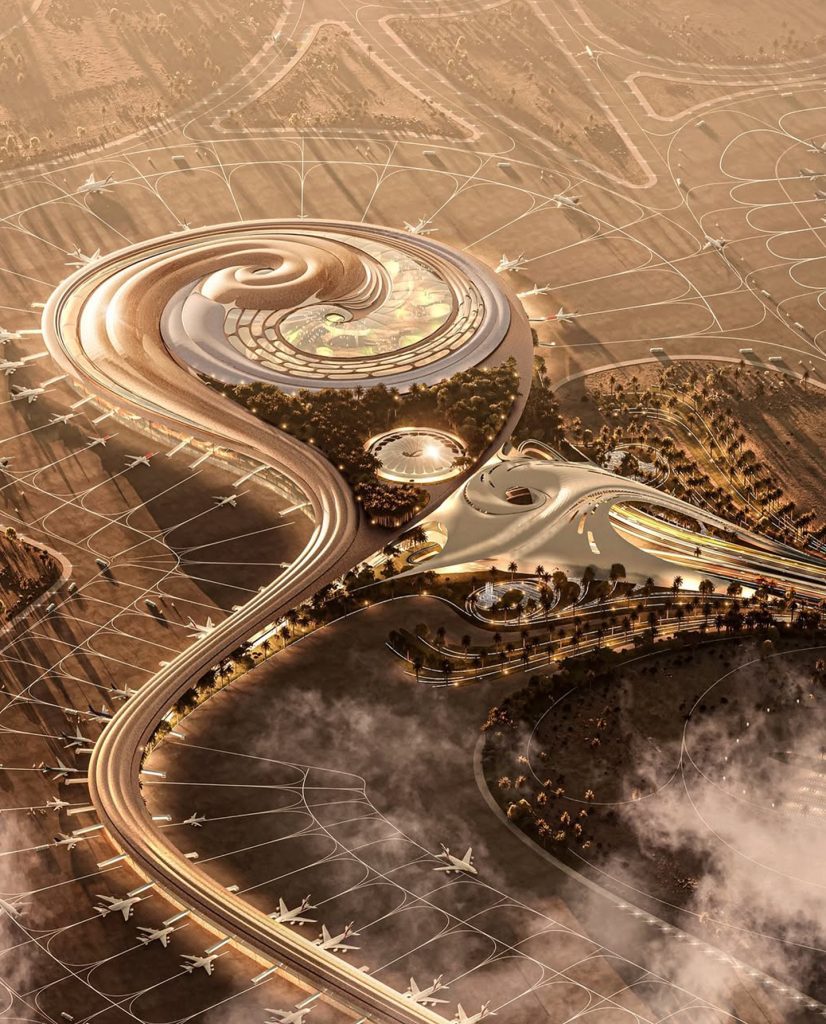
Part of Saudi Arabia’s sweeping Vision 2030 plan, the King Salman International Airport represents the nation’s determination to become a global hub for both tourism and business. The country aims to attract 120 million passengers annually by 2030, with projections rising to 185 million by 2050. For perspective, that would make Riyadh’s airport one of the busiest on Earth, surpassing even the likes of Dubai International and London Heathrow.

What sets this project apart is not just its scale, but its intelligence. Designers, including teams from MC Studios, are exploring how to layer artificial intelligence, digital twin technology, and immersive augmented reality into every corner of the passenger experience. From check-in to boarding, travelers will be guided by virtual assistants capable of predicting their needs. Imagine walking into a terminal where facial recognition replaces boarding passes, where baggage moves autonomously, and where AI systems manage everything from crowd flow to real-time flight adjustments based on weather, air traffic, and sustainability goals.
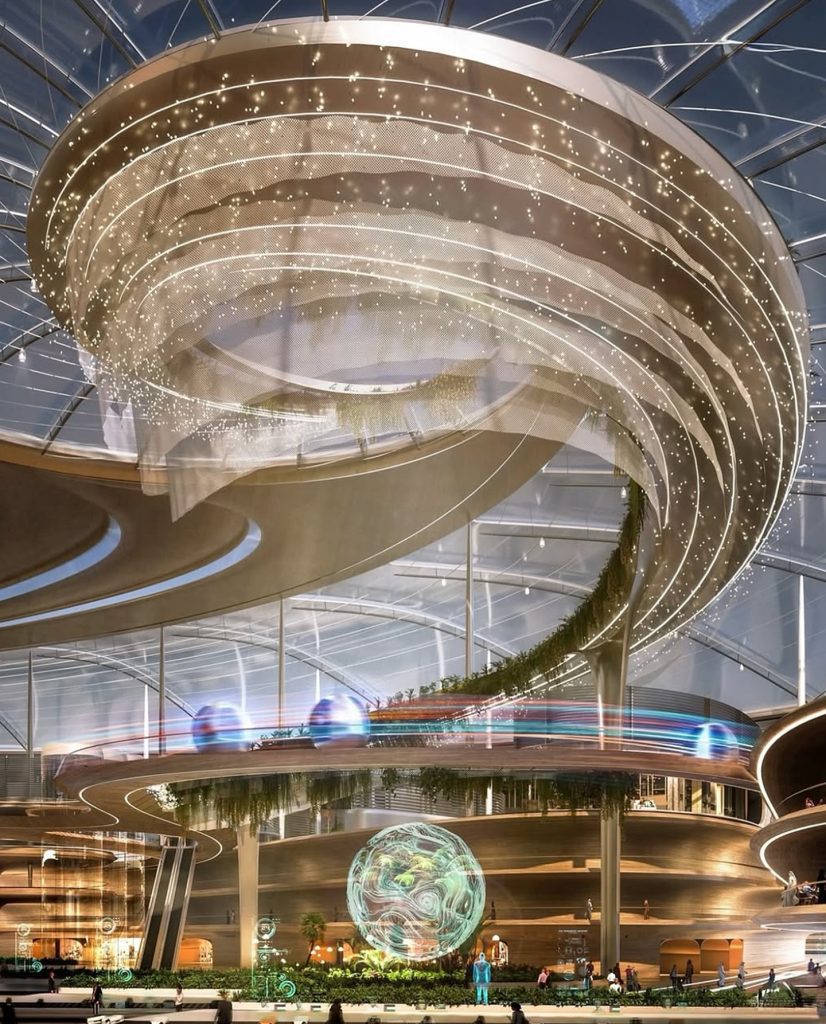
In many ways, this project is an architectural statement as much as it is an infrastructure one. The concept images reveal a spiraling, organic structure that looks less like an airport and more like a living organism — designed to breathe, adapt, and evolve with the rhythms of travel. It symbolizes what Saudi Arabia wants Riyadh to become: a place where technology, design, and humanity coexist in harmony.
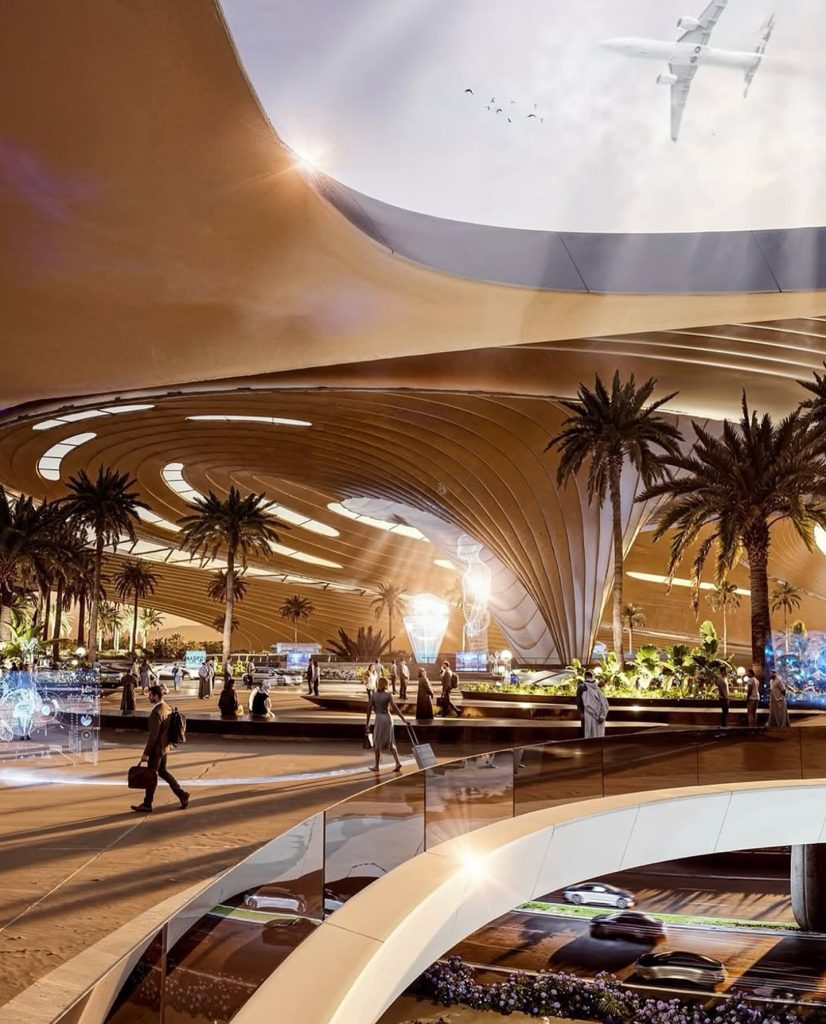
The project’s developers have also emphasized sustainability. The airport will integrate renewable energy systems, advanced cooling technologies, and smart grid designs that minimize carbon output. Officials have stated that the design aligns with the Kingdom’s broader commitment to environmental responsibility and innovation in clean energy.
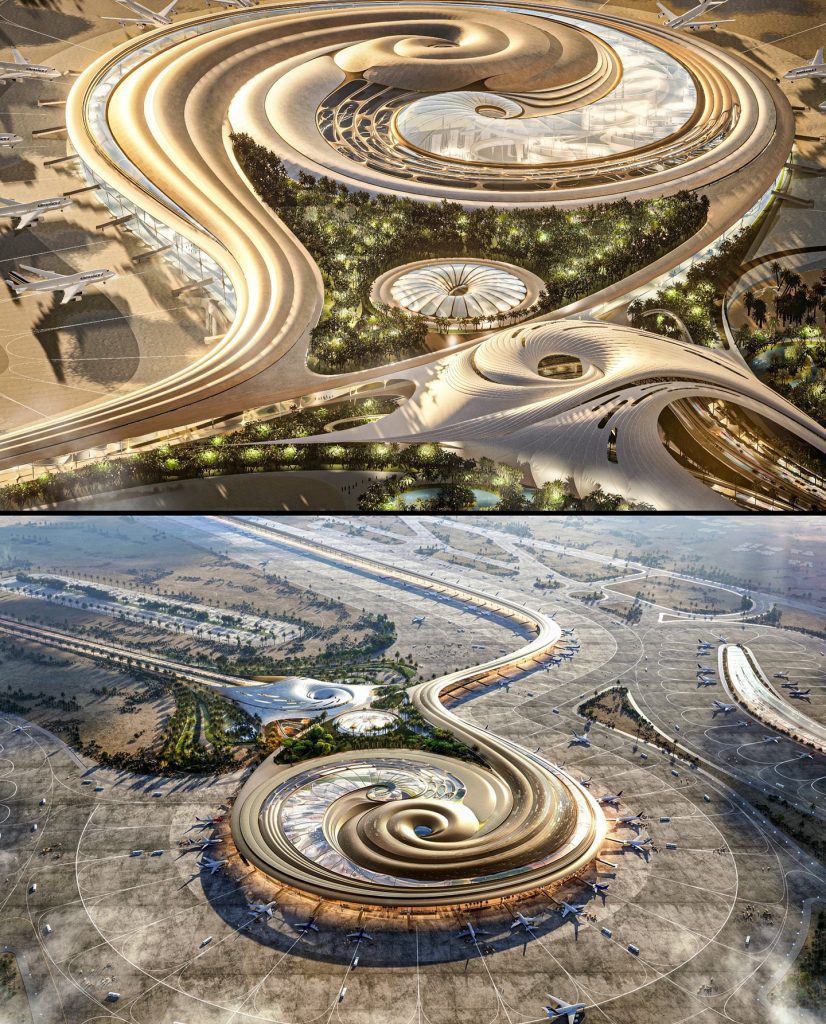
Economically, the King Salman International Airport is expected to transform Riyadh into a gateway for global business and tourism, helping diversify Saudi Arabia’s economy beyond oil. The airport will anchor the country’s logistics network, serving as a strategic node that connects East and West — a crossroads where innovation meets opportunity.
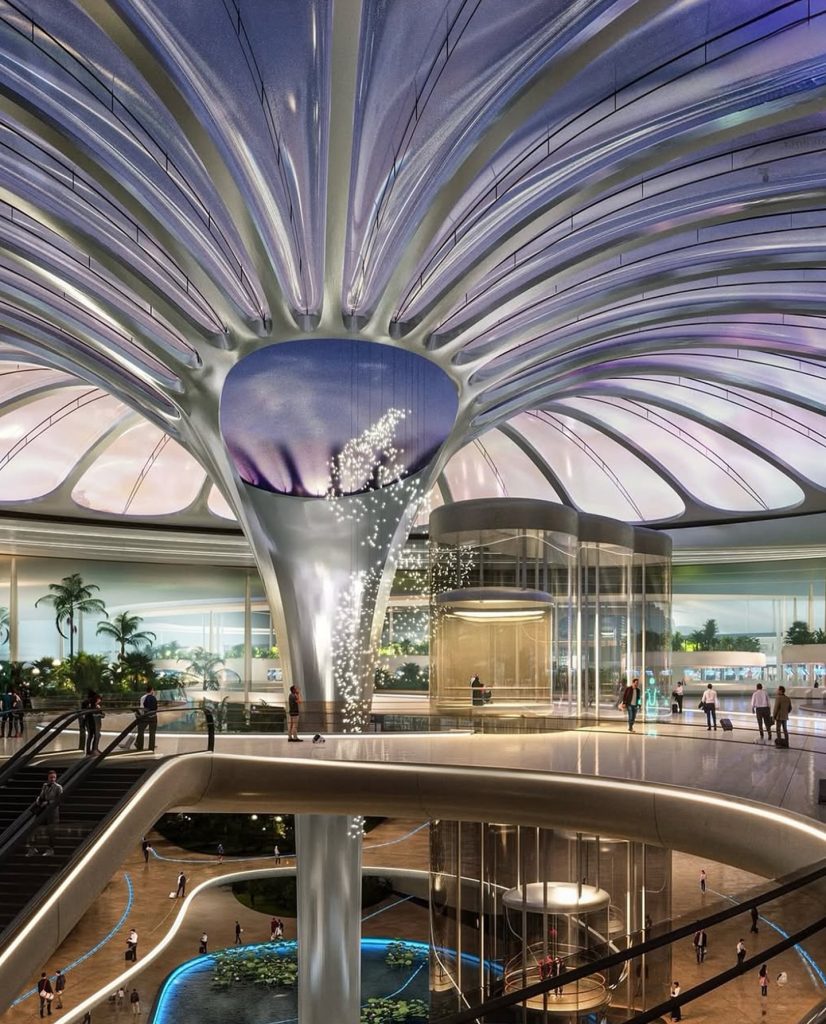
The timing couldn’t be more symbolic. As aviation enters a new era shaped by digital transformation and post-pandemic resilience, Saudi Arabia’s vision represents more than national pride — it’s a declaration of leadership in the next chapter of global mobility. This isn’t about competition; it’s about reinvention.
For travelers, the promise is breathtaking. A journey through this airport will not just be a passage between destinations but an immersive experience — one where technology anticipates needs before travelers even voice them. The idea of “waiting” might become obsolete altogether, replaced by intuitive design that flows effortlessly from entry to exit.
As the world watches this project take shape, it’s clear that Saudi Arabia is betting big on the future. The $30 billion investment isn’t just about transportation; it’s about identity. The King Salman International Airport will stand as a symbol of transformation — of a nation looking forward, ready to blend intelligence, infrastructure, and imagination into something the world has never seen before.

